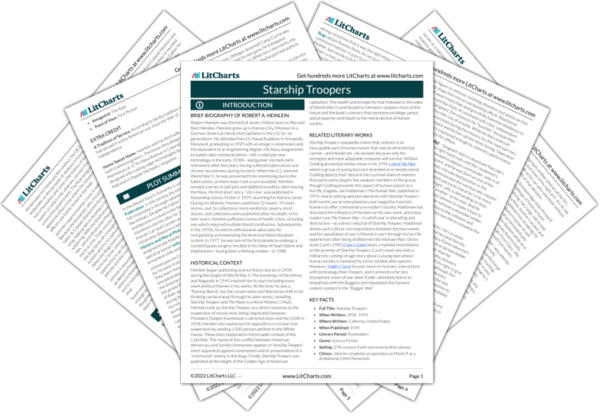Mr. Dubois offers an example to prove his point about value: if Johnnie didn’t earn an award like first prize, he won’t value it. By analogy, Mr. Dubois claims that citizenship can only be valued if it’s earned through hard work or suffering. In making this claim, he represents the book’s view that citizenship isn’t properly valued amidst the moral decay of 20th-century society. However, the analogy is limited: Mr. Dubois’s analogy only makes sense if citizenship is a prize, and he doesn’t acknowledge any other reasons that people might value citizenship. Within the limits of this worldview, military service—precisely because it is hard and dangerous—is the only way to earn truly valuable things.
